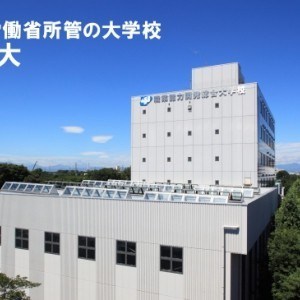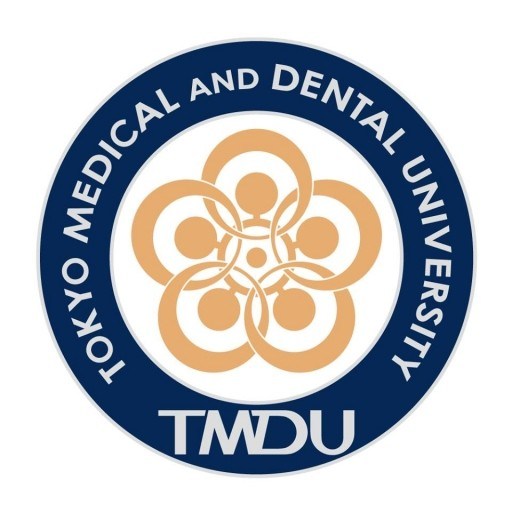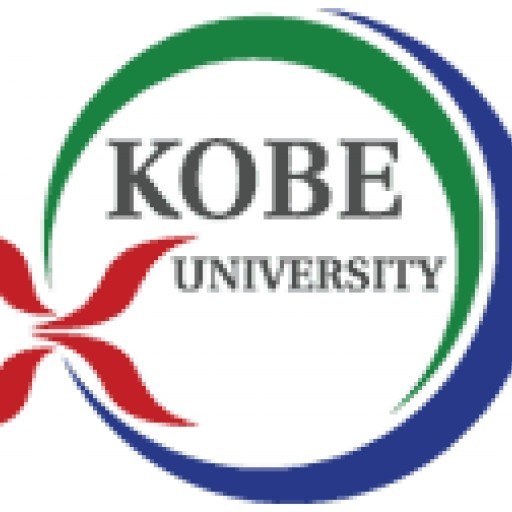Photos of university / #university_of_tsukuba
The Agro-Bioresources Science and Technology program at the University of Tsukuba is a comprehensive and interdisciplinary undergraduate course designed to equip students with the knowledge and skills necessary to address the global challenges related to food security, sustainable agriculture, and the effective utilization of bioresources. This program emphasizes the integration of biological sciences, engineering, and environmental management to foster innovations in the sustainable production and processing of agricultural and forestry products. Students will explore a wide range of subjects including plant and soil sciences, biotechnology, resource management, and environmental conservation, enabling them to contribute to the development of environmentally friendly and economically viable solutions within the agricultural sector. The curriculum is structured to promote practical learning through laboratory work, field studies, and project-based activities, ensuring students gain hands-on experience alongside theoretical understanding. Additionally, the program encourages international collaboration and communication skills, preparing graduates for careers both domestically and internationally in fields such as agricultural research, bioindustry, environmental consulting, and policy development. With a focus on sustainability and technological innovation, the Agro-Bioresources Science and Technology program aims to foster professionals capable of making meaningful contributions to food security, natural resource management, and ecological preservation in a rapidly changing world.
Agro-biological Science
Agro-biological Science is a domain which constitutes a basis for food production. It aims for the development of a producing technology which is based on the traditional system of agronomy and at the same time incorporates the latest biological techniques such as a molecular biological technique. In this domain, the education/research is conducted in the field relating to the breeding and production of crops, vegetables, ornamental plants and fruit trees; the production and management of livestock; the cultivation and conservation of forests; and the control of the animals, insects and microbes that have adverse influences on them.
Bioreasouce Environment Engineering
This domain consists of an interdisciplinary and fusional system incorporating biochemical techniques into the traditional engineering techniques based on mathematics and physics. It aims to achieve a new engineering with the goal of saving the impact of the modern society on the environment as much as possible. With this aim, the main field of research includes the development of new biological resources, the production and use of biological resources, the conservation and restoration of nature and ecology, the environmental utilization of biological resources etc. And it aims to understand the environmental problems according to the natural characteristics of the location and the developmental stage of the society and thereby to seek solutions.
Applied Biochemistry
The research project includes the following: understanding of the universality and diversity of life activities such as expression and regulation of gene functions; interactions between biological macromolecules, mainly a protein; adjustability of biological functions at a cellular or individual level; interactions between living organisms as well as between living organisms and the environment. Based on the research achievements, it carries out the development research of an environmentally friendly and ecologically sound biological production system, and an education/research regarding the extraction and production of useful substances, the application of biological functions to biomimetic chemistry, etc.
Agricultural Economics and Sociology
Biological resources are products resulting from ecological mechanism. As far as this ecological mechanism is maintained, reproduction of biological resources can be ensured. Both developing countries and highly developed countries are faced with social maladies due to environmental burdens and uneven distribution of food production, which makes it difficult to realize sustainable reproduction of biological resources. This domain provides an education/research aiming at the construction of a theory of ecologically sound economics and the development of a recycling socio-economic system that embodies the theory.
Biosystem Course
As the life industry has become rapidly highly sophisticated and specialized, people who are in charge of the practical tasks in this field are required to possess the latest knowledge and a wide perspective that enable them to comprehensively evaluate the social needs and social acceptability. Therefore, this course aims at training students especially to gain ability to understand practical problems and solve them. This course has curriculum different from the other four domains. It discloses a concept of post-biotechnology and realizes a practical education/research aiming at the following: creating new biological resources based on biotechnology, and a method that harmonizes their functions with living organisms and biological system; and constructing a permanent cycle in the closed system of human beings and other living organisms as well as inorganic materials from a perspective of future sustainable development of the whole of life.
Professional Training Program*
The professional development is one of the major demanding points of higher degrees. The international agricultural sciences is a multidisciplinary masters leading doctoral program focusing on agricultural topics dealing with appropriate technology and sciences for sustainable development, biosphere resource science and technology, life sciences and bioengineering, and bioindustrial sciences. The aim of this program is to develop leadership of agricultural expert capable to introduce innovative utilization of agricultural bioresources towards sustainability. The scientific reasoning and innovation can be achieved through this specialization degree, focusing fundamental and analytical research capability and enhancement courses for knowledge discovery, and finally performing a cutting-edge research in the emerging areas of agriculture, food, environment and energy.
The University of Tsukuba seeks students or on job professionals who are interested to develop them as frontier in the field of agricultural sciences focusing on agriculture, food processing, agricultural economics, applied biochemistry and aim to develop leading edge technology to solve the current problems of agricultural research on global perspectives.
- Entrance fees are 282,000 Japanese Yen (non-refundable).
- Supervisor of Your Choice / Exam Subject
- TOEIC Official Score Certificate or TOEFL Examinee (Test Taker) Score Report which is sent to the TOEFL examinee from ETS by postal mail
- Research Plan
- Educational Background
- Examination Fees
- (Expected) Graduation Certificate*
- Degree Certificate*
- Academic Transcript*
- Copy of “Application Completed” Page of Examination Fee Payment by Credit Card
- Receipt Portion (Certificate of Payment) of Examination Fee Statement
- Letter of Approval for Entrance Exam (Form of Your Selection)
- Certificate of Government-Sponsored (Japanese Government Monbukagakusho Scholarship) Foreign Student
The Agro-Bioresources Science and Technology program at the University of Tsukuba offers a range of financing options to support students throughout their academic journey. Prospective students can explore several avenues for financial assistance, including scholarships, tuition waivers, and loan programs designed to alleviate the economic burden associated with higher education. The university provides merit-based scholarships for outstanding students, which are awarded based on academic achievement, research potential, and extracurricular activities. These scholarships often cover partial or full tuition fees and may include stipends for living expenses. Additionally, the university collaborates with governmental agencies, private foundations, and industry partners to administer external scholarship programs tailored for international and domestic students enrolled in scientific and technological fields, including Agro-Bioresources Science and Technology. Applicants are encouraged to check the university's official website and financial aid office for detailed eligibility criteria and application procedures. Furthermore, the university offers work-study opportunities, allowing students to engage in part-time work within the campus facilities or in research projects, thereby gaining practical experience and earning supplementary income. Loan programs are also available through Japanese government schemes or private financial institutions, providing students with accessible options to finance their studies with manageable repayment terms. The university's dedicated financial aid advisors assist students in navigating these various options to develop personalized financial plans that suit their needs. It is important for students to apply early for scholarships and financial aid to maximize their chances of receiving support, and to ensure they meet all deadlines and documentation requirements. The comprehensive financial support system at the University of Tsukuba is designed to enable qualified students to pursue their education without undue economic hardship, fostering an environment of academic excellence and research innovation in Agro-Bioresources Science and Technology.
The Agro-Bioresources Science and Technology program at the University of Tsukuba offers students a comprehensive education in the fields of agricultural and bioresource sciences, focusing on the sustainable use and management of biological resources. This program aims to develop professionals equipped with advanced knowledge and practical skills necessary to address global challenges such as food security, environmental conservation, and renewable energy. The curriculum integrates fundamental sciences including biology, chemistry, and ecology with applied studies in agricultural technology, biotechnology, and environmental management. Students have the opportunity to participate in hands-on research projects, laboratory experiments, and fieldwork, fostering a deep understanding of current issues facing agriculture and bioresources. The program also emphasizes the importance of innovation and technological development, preparing graduates to contribute effectively to industries such as crop production, livestock management, bioenergy, and environmental consultancy. Collaboration with national and international research institutions enhances learning experiences and broadens career prospects. Graduates are equipped to pursue careers in research, development, policy-making, and industry sectors related to sustainable agriculture and resource management. The program promotes interdisciplinary approaches, integrating engineering, environmental science, and economics to address complex challenges in bioresources. Students benefit from state-of-the-art facilities and cutting-edge research opportunities, supported by faculty experienced in various domain areas. Overall, the Agro-Bioresources Science and Technology program at the University of Tsukuba prepares students to become innovative leaders in sustainable bioresource utilization, contributing to global efforts for a healthier and more sustainable future.








